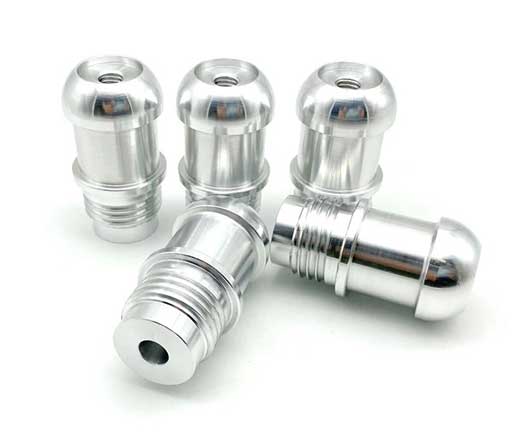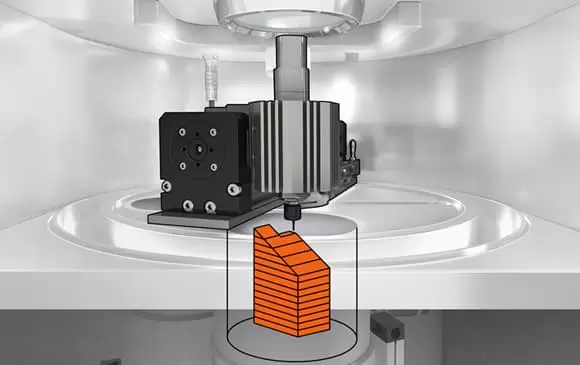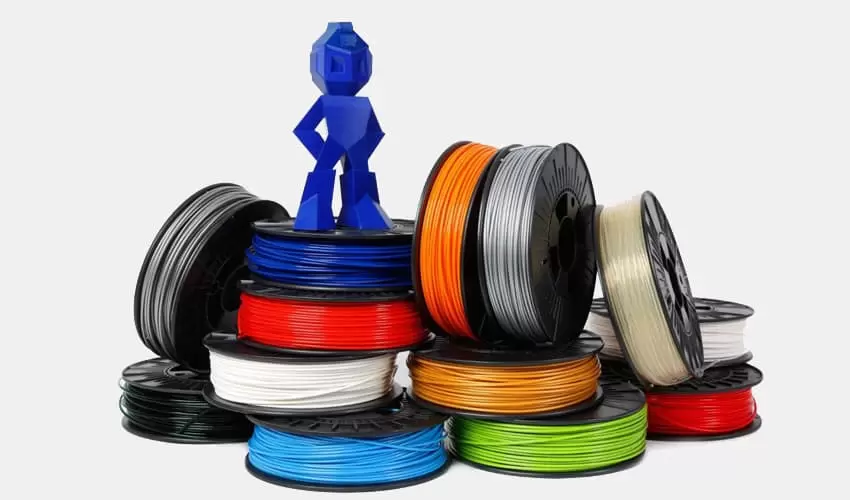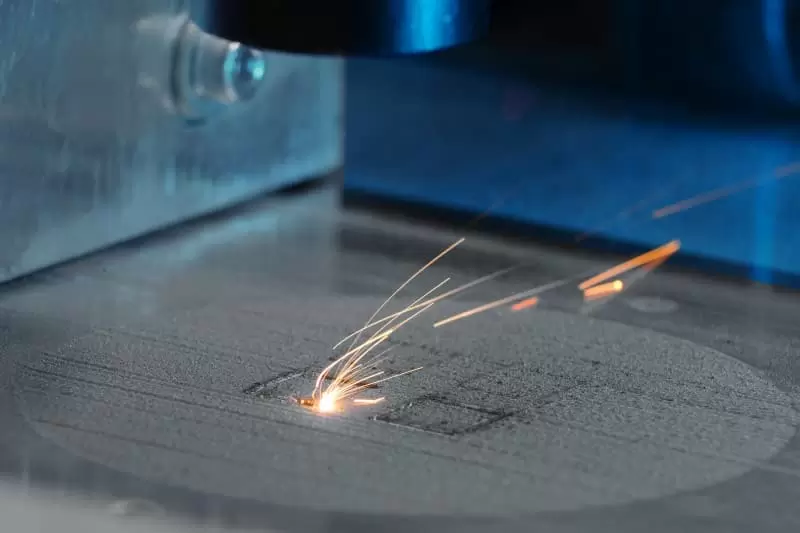Selecting the right CNC machining parts supplier is critical for ensuring high-quality products and a reliable supply chain. When making this important decision, there are several factors to consider.
Evaluating the supplier's experience and expertise
When it comes to choosing a CNC machining parts supplier, one of the most important factors to consider is their experience and expertise. A supplier's level of experience can directly impact the quality of the parts they produce, as well as their ability to meet your specific manufacturing needs.
Consider years in business
One way to evaluate a potential supplier's experience is by looking at how long they have been in business. Generally speaking, suppliers with more years of operation under their belt will have had more opportunities to refine their processes and improve their capabilities.
However, it's worth noting that newer suppliers may still be able to offer high-quality parts if they have experienced staff members or specialize in certain types of machining processes.
Look for industry-specific knowledge
Another aspect of evaluating a CNC machining parts supplier's expertise is considering whether they possess any industry-specific knowledge or certifications. For example, if you require precision aerospace components, you may want to work with a supplier who has experience producing such components and understands the unique requirements involved.
Certifications like ISO 9001 can also be an indicator that a supplier adheres to strict quality standards and has implemented effective quality control measures within their operations.
Assess equipment and technology capabilities
Finally, when assessing a potential CNC machining parts supplier's expertise, it's important to consider what type of equipment and technology they have available. Ask about what types of machines are used for various stages in production (such as turning or milling), as well as any specialized technologies that may be required for your particular project.
It can also be helpful to inquire about whether the supplier regularly invests in new machinery or software updates - this indicates not only an interest in staying current with advances within the industry but also suggests a commitment towards improving efficiency and accuracy throughout all aspects of production.
Reviewing their equipment and technology capabilities
When choosing a CNC machining parts supplier, it is important to thoroughly review their equipment and technology capabilities. This can help ensure that the supplier has the necessary resources to provide high-quality products within your required specifications.
Inspecting the equipment quality
The first aspect to consider when reviewing a supplier's equipment is its overall quality. This includes assessing whether they use modern and well-maintained machines that are capable of producing complex parts accurately and efficiently.
You may want to ask the supplier about their equipment maintenance schedule, as regular maintenance can help prevent breakdowns or malfunctions during production runs. Additionally, you may want to inquire about any certifications their machines have obtained, such as ISO 9001:2015 for quality management systems.
Assessing the technology capabilities
In addition to inspecting machine quality, it is also important to assess a supplier's technology capabilities. This means looking at how well they integrate software and data analysis tools with their machining processes.
One key capability could be Computer-Aided Design (CAD) software proficiency; this allows suppliers to create detailed models of parts prior to manufacturing them in order minimize errors or inconsistencies during production runs.
Another tool which could be beneficial is Computer Numerical Control (CNC) programming expertise; this enables suppliers' machines run through programs without human intervention thereby improving speed & accuracy in manufacturing process.
Furthermore, some suppliers might have implemented advanced technologies like Artificial Intelligence/Machine Learning algorithms which helps mining vast amount of data generated by sensors on machine tools/machines themselves - allowing early detection & resolution of issues before escalation resulting in savings for both time & capital expenditure.
By carefully evaluating a CNC machining parts supplier's equipment and technology capabilities based on these sub-sections mentioned above , you can select one who meets your specific requirements for precision-manufactured components while delivering optimal service levels throughout all stages from design conception up until final delivery phase .
Assessing their quality control processes
When it comes to choosing the right CNC machining parts supplier, one of the most important factors to consider is their quality control processes. High-quality parts are critical for any manufacturing process and can greatly impact the overall success of your product. Therefore, it's crucial to ensure that your supplier has an effective quality control system in place. In this section, we will discuss how you can assess a potential CNC machining parts supplier's quality control processes.
Understanding the quality control system
Before you begin assessing a supplier's quality control processes, it's important to have a basic understanding of what a good system looks like. A well-designed quality control system should include several key components:
Quality standards: The first step in any effective quality control process is setting clear standards for what constitutes high-quality parts. These standards should be based on industry best practices and tailored to meet your specific needs.
Inspection procedures: Once these standards are established, there must be regular inspections throughout the manufacturing process to ensure that they're being met. Depending on the type of part being produced, these inspections may take place at various points during production.
Corrective actions: If any defects or issues are identified during inspection, there must be clear procedures in place for correcting them quickly and effectively.
Verifying the quality control processes
Once you understand what a good quality control system includes, you can start verifying whether or not potential suppliers have such systems in place. Here are some steps you can take:
Request documentation: Ask potential suppliers if they have written documentation outlining their quality control processes and procedures. This documentation should include information about inspection criteria and corrective action plans.
Review certifications: Many manufacturers obtain third-party certifications from organizations like ISO (International Organization for Standardization). These certifications indicate that a manufacturer has been audited by an independent body and meets certain minimum requirements related to their production practices.
Ask about testing capabilities: Depending on your industry and specific application, you may require additional testing beyond standard inspections. For example, if your parts will be used in a high-stress environment, you may need to verify their strength and durability through specialized testing procedures. Ask potential suppliers about their ability to perform such tests.
Request samples: Finally, one of the best ways to assess a supplier's quality control processes is by requesting samples of their work. This allows you to see firsthand whether or not they're capable of producing high-quality parts that meet your standards.
Considering their pricing and delivery options
Comparing pricing options
When choosing a CNC machining parts supplier, it is important to consider their pricing options. The cost of the parts can vary greatly between suppliers, and it is essential to compare prices before making a decision. Look for a supplier that offers competitive pricing without sacrificing quality. Keep in mind that the cheapest option may not always be the best choice as you do not want to compromise on quality for cost savings.
One way to compare prices among different suppliers is by requesting quotes from each one. You can provide them with your specifications and requirements so they can give you an accurate quote. This will help you compare apples-to-apples when reviewing each quote.
Another factor to consider when comparing prices is the volume of parts needed. Some suppliers offer bulk discounts which could be beneficial if you require large quantities of parts.
Understanding delivery options
Delivery timeframes are another crucial aspect to consider when selecting a CNC machining parts supplier. It's essential that your chosen supplier has reliable and timely delivery options so that production timelines aren't compromised.
Before placing an order, make sure you understand the lead times offered by your chosen supplier; this will ensure that they have enough time to produce and deliver your project within your desired timeframe.
Also, find out whether or not expedited shipping options are available if required in case there are unexpected delays during transit or at customs checkpoints etc., Expedited shipping may come at an additional cost but could prove valuable if deadlines must be met.
Checking for certifications and industry standards compliance
When choosing a CNC machining parts supplier, it is important to ensure that they are certified and compliant with industry standards. This shows that the supplier has met certain quality requirements and adheres to best practices in their manufacturing processes.
One of the most common certifications for CNC machining suppliers is ISO 9001, which sets standards for quality management systems. Suppliers should also be able to provide documentation showing compliance with other industry-specific certifications such as AS9100 or TS16949.
In addition to certifications, it's essential to check if the supplier follows relevant industry standards such as ASTM (American Society for Testing and Materials) or SAE (Society of Automotive Engineers). These organizations set guidelines on material properties, testing methods, and safety regulations.
Compliance with these certifications and standards ensures that products meet specified requirements consistently over time. It gives customers confidence in the reliability and consistency of their orders while reducing the risk of defects or failures down the line.
It's worth noting that some suppliers may claim to have certification without actually meeting all requirements. Therefore, it's crucial not only to ask for certificates but also verify them through third-party sources like accreditation bodies or certification agencies.
Overall, checking a potential CNC machining parts supplier’s credentials can help you make an informed decision about who you want to work with long term. By partnering with a certified and compliant supplier, you can trust in their ability to deliver high-quality products consistently while minimizing risks associated with noncompliant manufacturers.
Conclusion
In conclusion, choosing the right CNC machining parts supplier requires careful consideration and research. It is important to assess the supplier's experience, quality control measures, and certifications before making a decision. Additionally, communication and responsiveness are key factors in ensuring a successful partnership with your chosen supplier. By taking these factors into account, you can confidently select a reliable and trustworthy CNC machining parts supplier that meets your specific needs. Remember to always prioritize quality over cost as this will ultimately result in better end products for your business or project.
What are four factors to consider when selecting a CNC machine tool?
When selecting a CNC machine tool for your machining needs, there are several factors to keep in mind:
- Precision and Quality: Look for a supplier that offers CNC machine tools known for their precision and quality. Consider factors like accuracy, repeatability, and the supplier’s reputation for manufacturing reliable and consistent equipment.
- Performance and Capability: Assess the machine’s performance parameters, such as speed, cutting force, tool capacity, and the ability to handle materials relevant to your specific machining requirements. Ensure that the machine has the necessary features and capabilities to meet your project needs.
- Reliability and Durability: Seek a supplier that offers robust and durable machine tools that can withstand rigorous production demands. Look for machines with proven reliability, minimal maintenance requirements, and a track record of operational uptime.
- Service and Support: Consider the level of service and support provided by the supplier. Look for a supplier that offers comprehensive customer support, including technical assistance, training, and readily available spare parts. A responsive and knowledgeable support team can greatly enhance your overall machining experience.
What are the requirements in the selection of tools for CNC machining?
Selecting the right tools for CNC machining is essential for achieving optimal results. Here are some requirements to consider:
- Material Compatibility: Ensure that the tools are suitable for the specific materials you will be machining. Different materials require different tool materials, coatings, and geometries to achieve efficient and precise machining.
- Cutting Parameters: Consider the recommended cutting parameters for the tools, such as cutting speed, feed rate, and depth of cut. Choosing tools that can handle the required cutting parameters efficiently will enhance both productivity and tool life.
- Tool Life and Performance: Evaluate the expected tool life and performance of the tools under typical working conditions. Look for tools with a balance between durability and cost-effectiveness, ensuring extended tool life without compromising machining quality.
- Tool Versatility: Opt for tools that provide versatility in application. Selecting tools that can handle multiple machining operations or different shapes and sizes of workpieces can help streamline your machining processes and reduce tool changeovers.
How to make CNC parts cheaper?
Making CNC parts more cost-effective can be achieved through several strategies:
- Material Optimization: Choose the most suitable and cost-effective material for your parts without compromising performance requirements. Efficient material use can help reduce waste and lower overall production costs.
- Design for Manufacturability: Work closely with your CNC machining supplier to optimize part designs for manufacturing efficiency. Design parts that minimize complex features, reduce machining time, and optimize material removal processes.
- Batch Production: Whenever possible, consider batch production to take advantage of economies of scale. Producing parts in larger quantities can help drive down costs per part.
- Streamline Machining Processes: Collaborate with your supplier to examine the machining processes and identify areas where efficiency improvements can be made. Fine-tuning tool paths, reducing unnecessary tool changes or setups, and implementing automation can all lead to cost savings.
By considering these factors when selecting a CNC machine tool, adhering to requirements in tool selection, and implementing cost-saving measures, you can optimize your CNC machining processes and make CNC parts more cost-effective.




